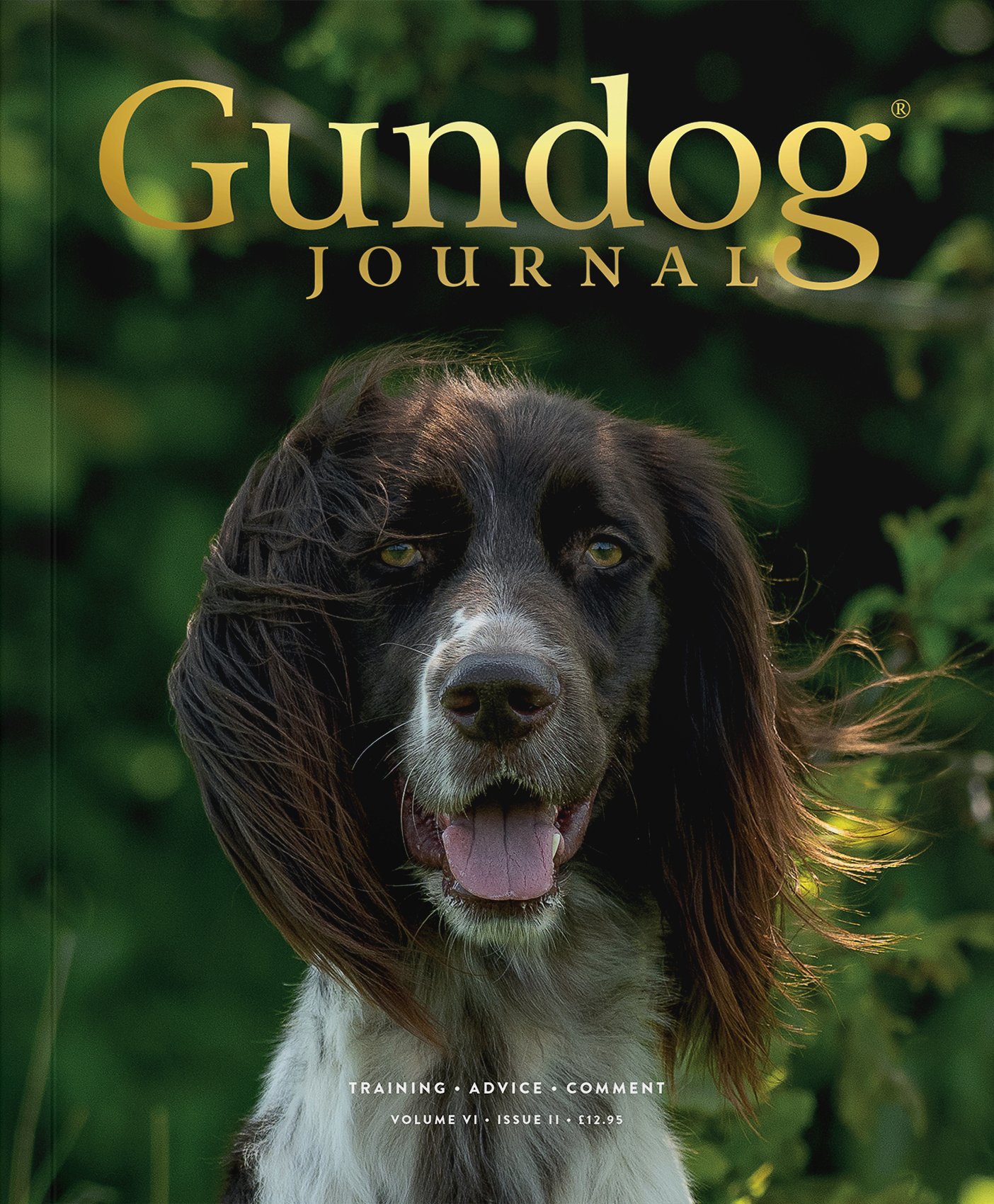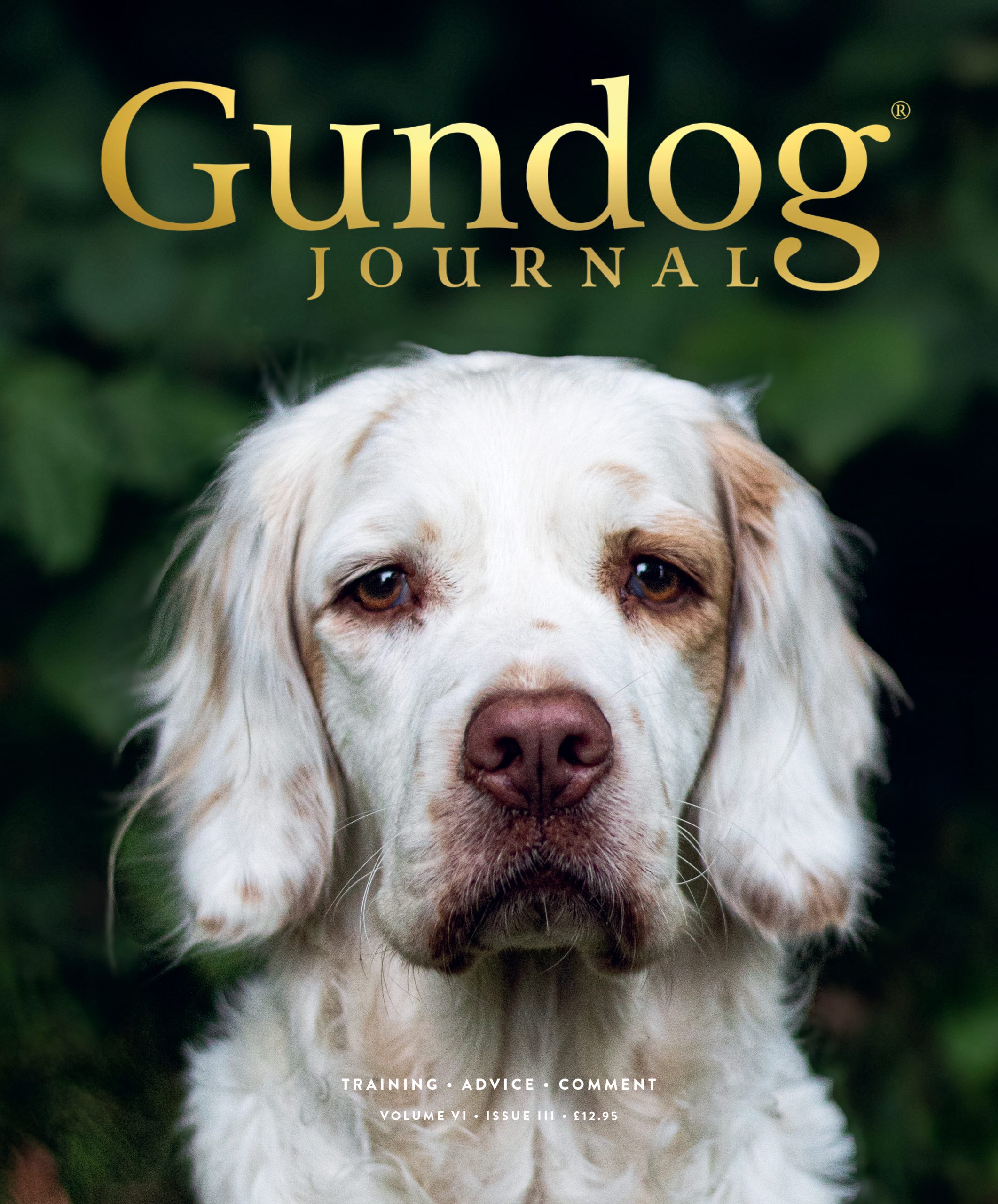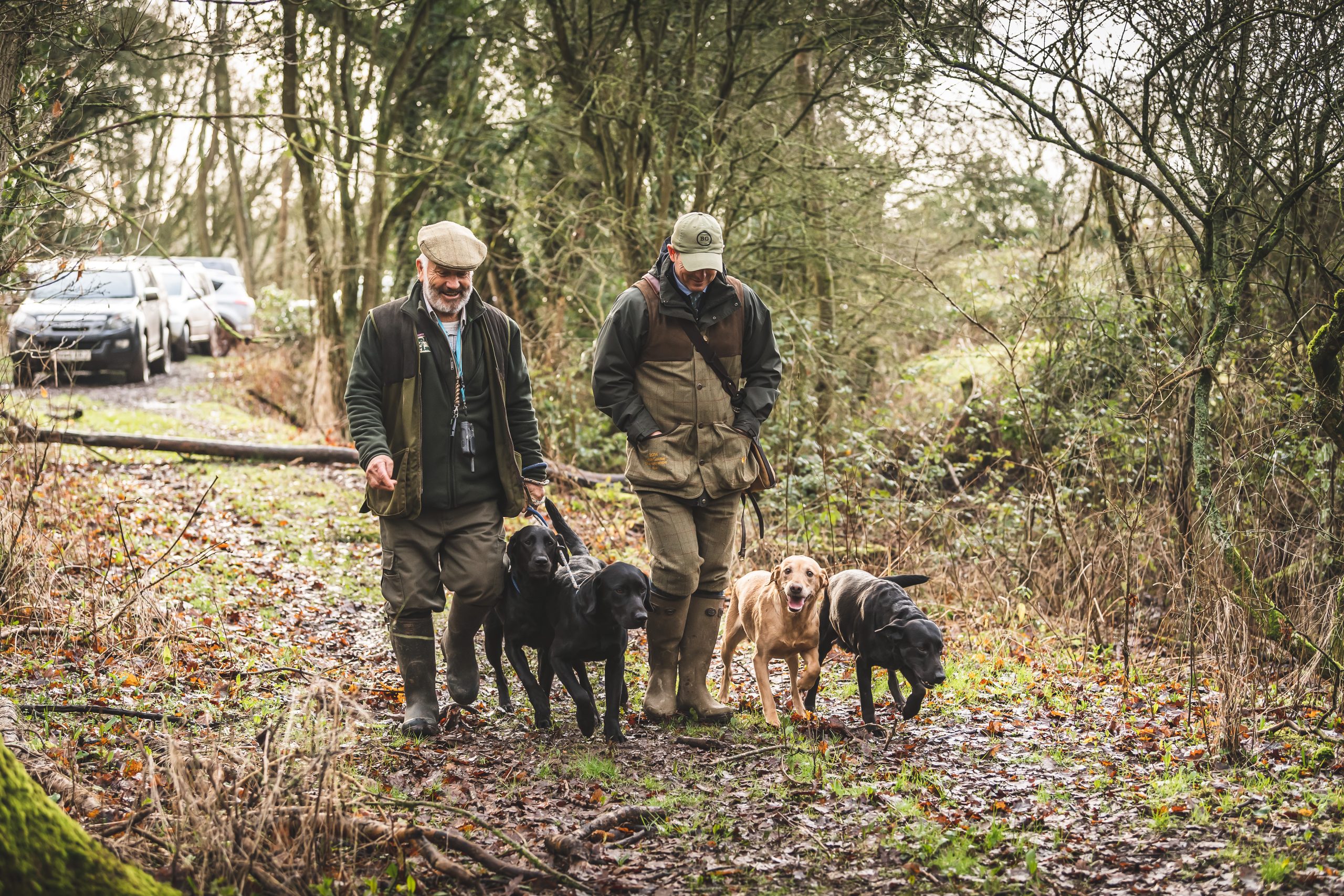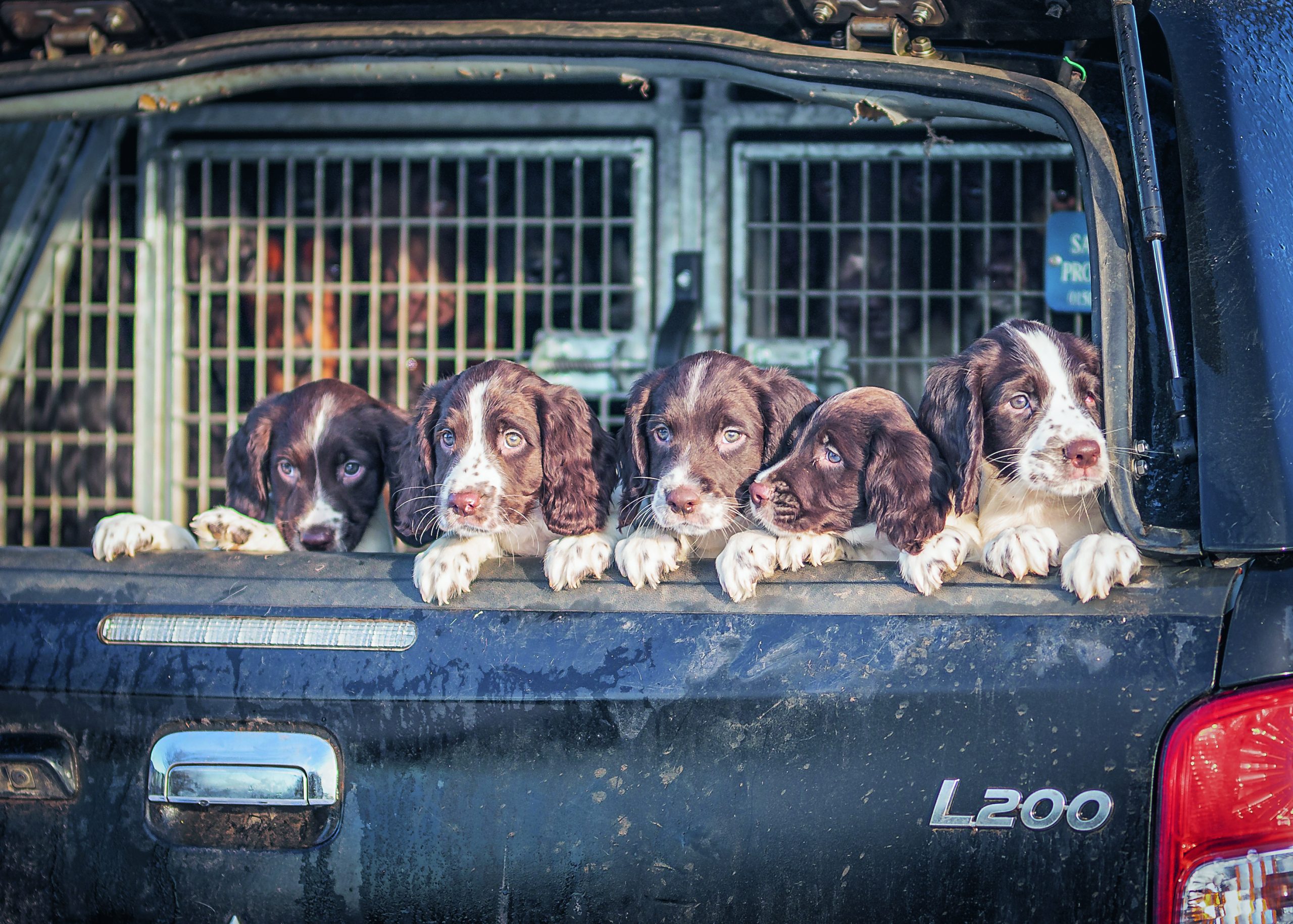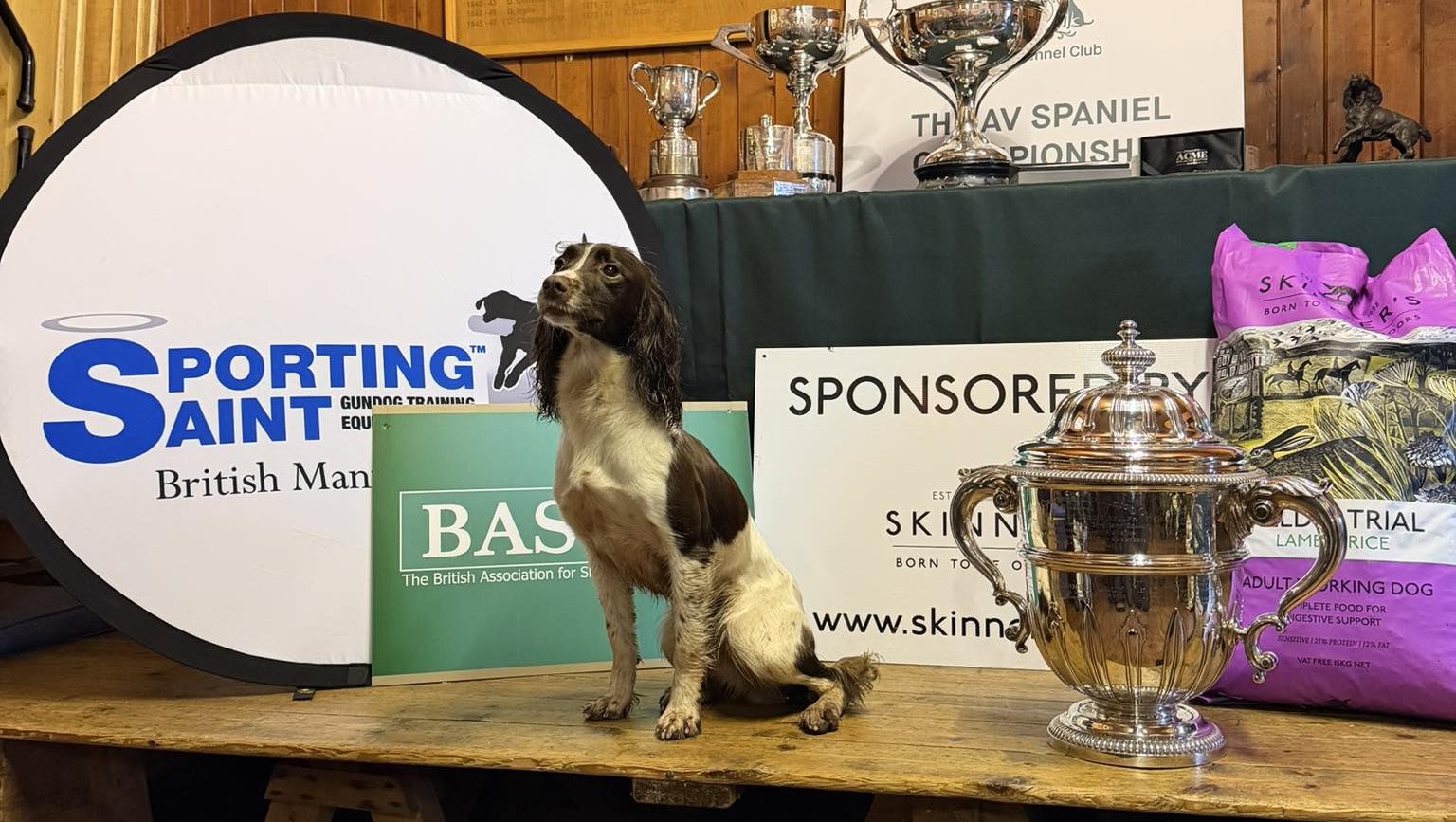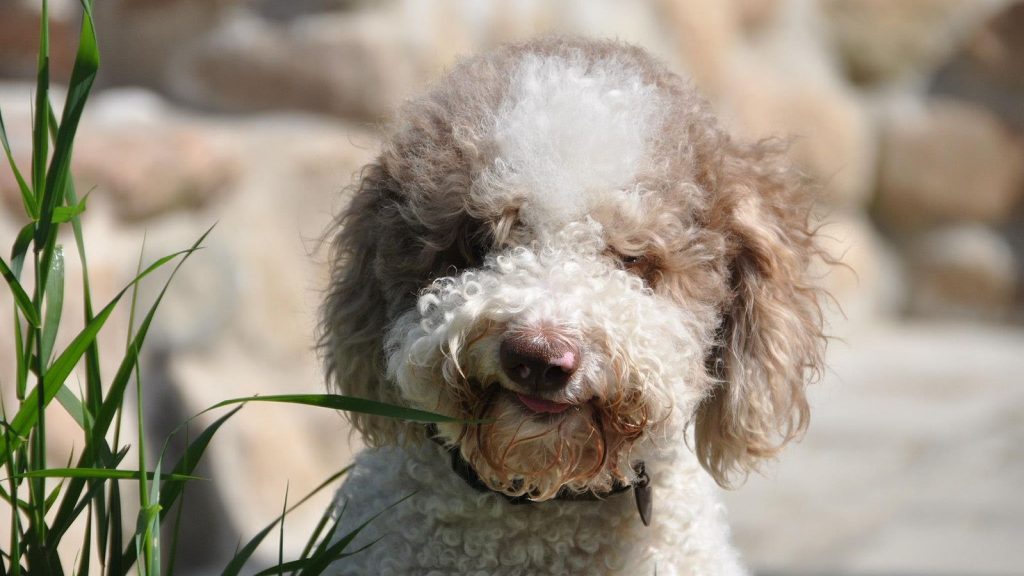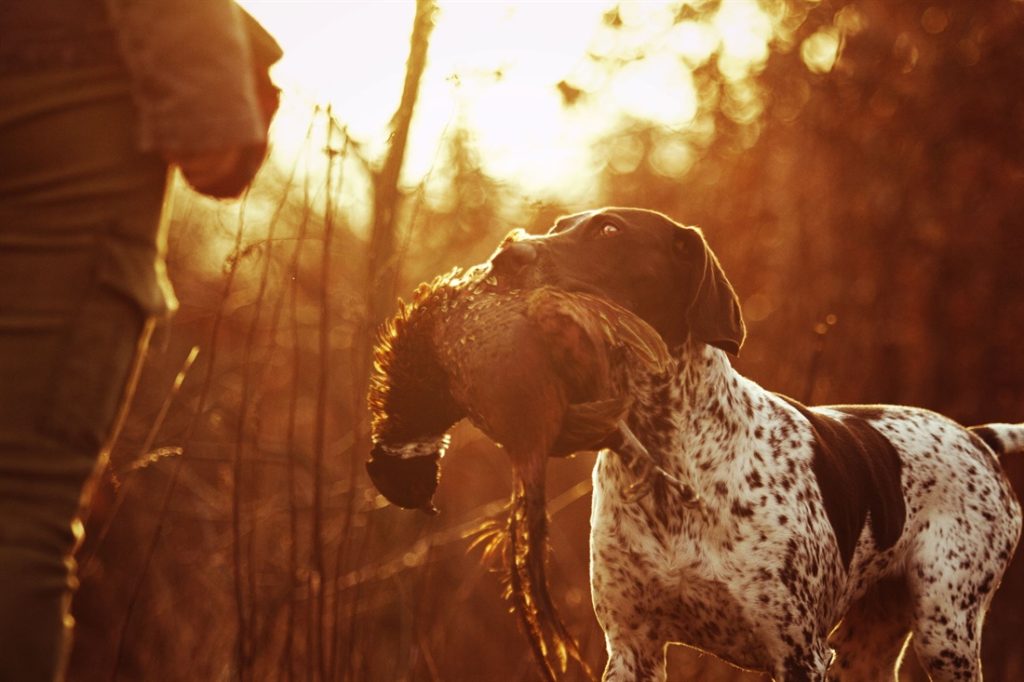Clumber Spaniel
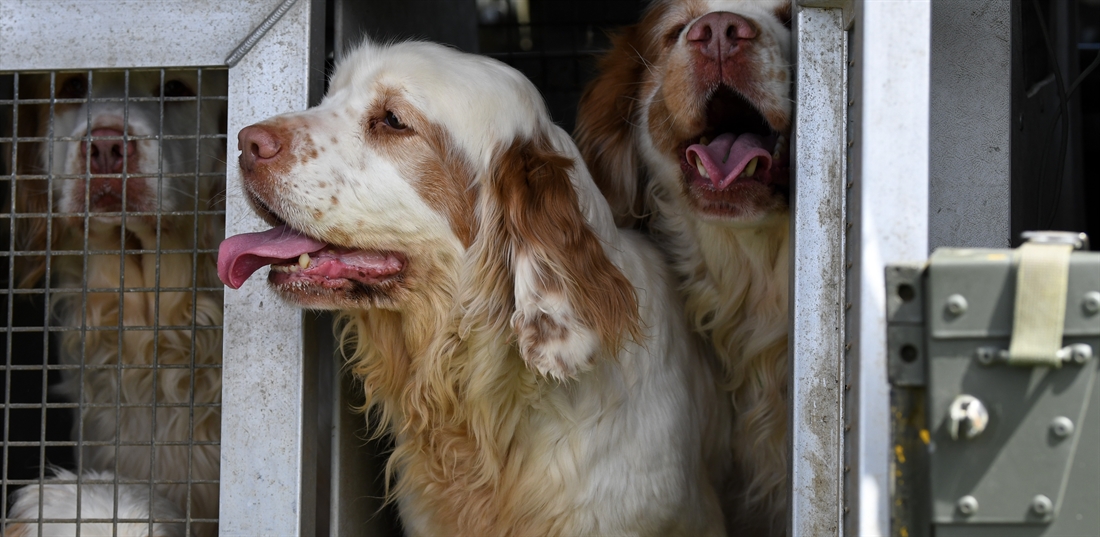
The Clumber Spaniel was first developed in the late 18th century by the Duke of Newcastle at his estate in Clumber Park, Nottingham, which is where the breed gets its name. It was a popular breed among the nobility, as it hunted in packs to flush partridge and pheasant from heavy cover.
Clumber Spaniel: Key Characteristics
The working Clumber Spaniel has made a great comeback in the field in recent years. This breed is solidly built, with a large square head, broad muzzle, large ears, and a long, low-slung body covered in a dense flat coat that’s primarily white with lemon or orange markings.
This breed is a slower-paced working dog that’s known for its stamina, keen nose, drive, and steadiness. This gundog is also very loyal and affectionate in the home, and it also adapts well to kennels.
Generally a very friendly breed, this spaniel breed is also known for its whole-body wag. It can be reserved at first with both strangers and other dogs, but Clumber Spaniels tend to be good with children, if brought up with them.
This working dog is an excellent choice for upland rough shooting, and is well-suited for beating and picking up teams. Learn more about this breed’s attributes as a gundog here.
Owning A Clumber Spaniel: Pros And Cons
Pros Of Owning This Breed
- Highly intelligent, making them easy to train
- Relatively long life span of around 12 years
- Affectionate family dog that’s good with children and other dogs
- Naturally gentle, friendly nature
- A good breed for first-time dog owners
Cons Of Owning This Breed
- Can be easily distracted during training, as the breed has a high wanderlust potential
- Can shed and drool a lot
- Can experience separation anxiety when left alone for long periods
- May be wary around strangers
- Can be stubborn and mischievous
- This breed can be prone to hip dysplasia, so avoid placing unnecessary pressure on the joints, such as through unnecessary jogging
Grooming Tips
These spaniels both shed and drool a lot, meaning they can require regular grooming. Here are some grooming tips to bear in mind:
- Always brush your dog thoroughly before grooming. As this breed is prone to drooling, its coat can become sticky and matted, meaning regular brushing is essential
- Make sure you extend your brushing down the dog’s legs, as the hair here can be longer and prone to tangling
- Use a specialist dog shampoo during bathing to help keep their coat in the best possible condition
- Trim the hair on your dog’s feet regularly to prevent any knotting around their claws
- Check your dog’s ears and paws regularly, keeping an eye out for grass seeds on their feet
Find out more about different working spaniel breeds here.
Related Articles
Get the latest news delivered direct to your door
Subscribe to Gundog Journal
Unlock the full potential of your working dog with a subscription to Gundog Journal, the UK’s only dedicated magazine for gundog enthusiasts. Published bi-monthly, this authoritative resource delivers expert training advice, in-depth interviews with top trainers and veterinary guidance to help you nurture a stronger bond with your dog.
With stunning photography and thought-provoking content, Gundog Journal is your essential guide to understanding, training and celebrating your working dog.
Save 10% on shop price when you subscribe, with a choice of packages that work for you. Choose from Print & Digital or Digital only with each journal delivered directly to your door or via the app every other month, plus access to past issues with the digital back issue library.
